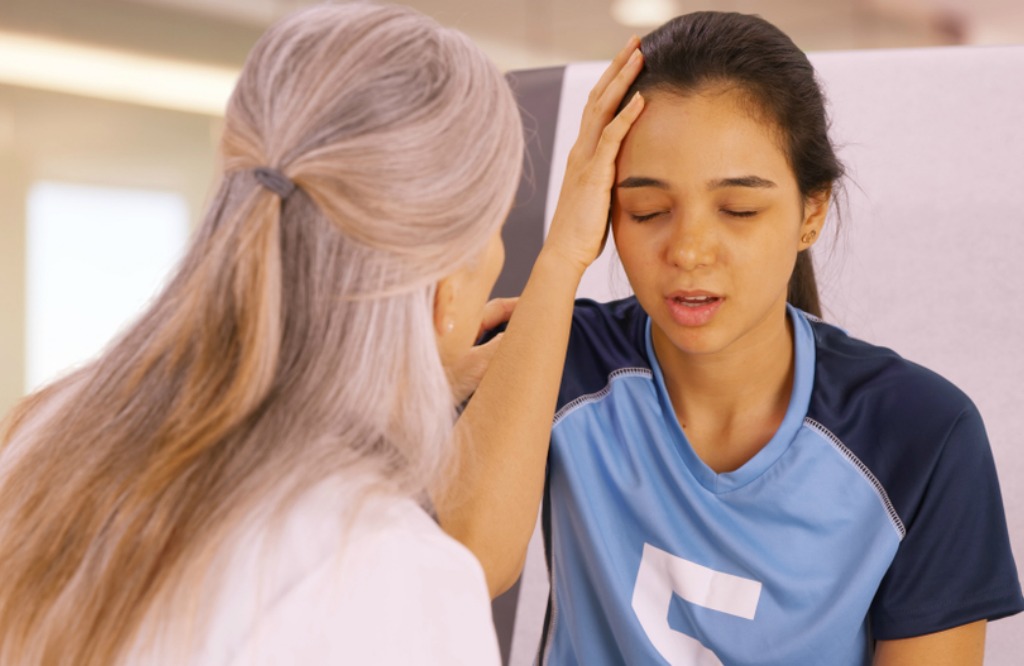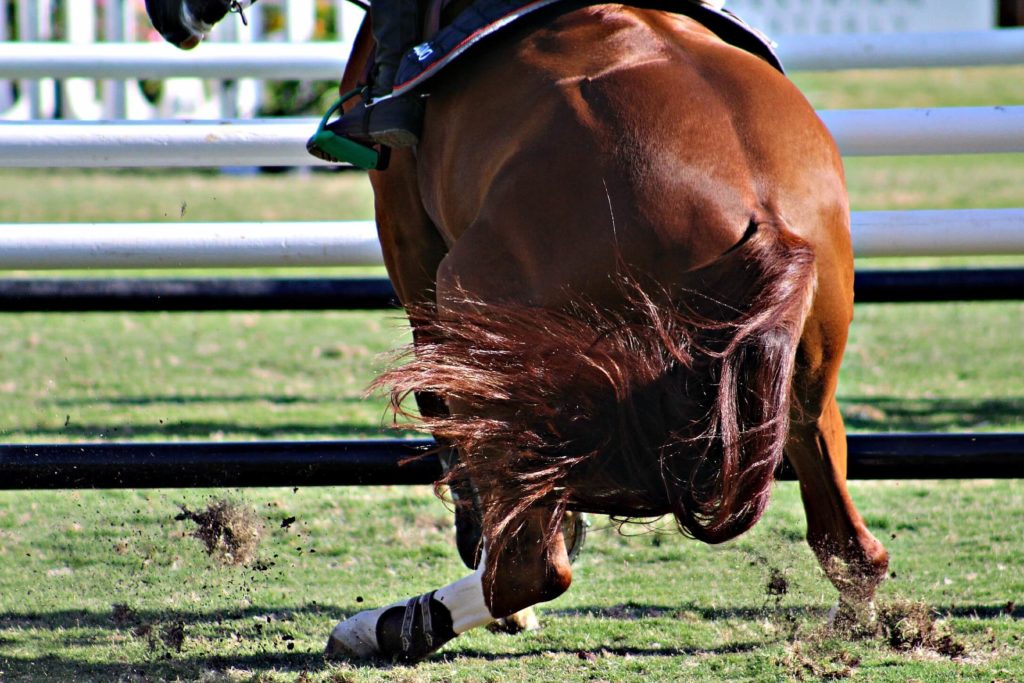
How Do You Know If You Have A Concussion?
By Alex Flanagan
How do you know if you have a concussion? Concussions in kids are more common than you think. I’d be lying if I told you I wasn’t worried about my 7-year-old son’s interest in playing football because of concussions. As a sideline reporter, I’ve seen, with my own eyes, football players knocked out because of hits to the head.
Listen to this podcast on concussions for the latest information and studies on treatments for concussions, who is most at risk, and debunks some long-held concussion protocols.
Yet when my daughters wanted to take horseback riding lessons, I didn’t think twice about the possibility of a concussion…even though they would be falling off a 1,000-pound Animal at galloping speed. Then I stumbled upon this Internet article and couldn’t believe my eyes:
Almost half of the equestrian riders (44%) experienced concussions during their careers. Those riders who suffered a brain injury were likely to return to riding without seeking medical clearance. Almost 40% of riders were never educated regarding concussions, while 15% received education from their trainers.
It got me thinking. Concussions from football have dominated recent headlines, and the side effect of that is everyone has become more aware of the potential for head injuries in the sport. But don’t think for a second that your children are safe from head injuries just because they don’t play football.
Concussions are quite common in children and are caused by a variety of activities. In fact, I know two kids who recently suffered concussions. One from practicing a cartwheel, and the other fell out of a bunk bed. My own daughter suffered one when she zip-lined straight into a tree. I even had one as a kid when I was knocked unconscious after sliding into a wall during a game of tag.
What parents need to know is a concussion is a concussion, and if volunteer coaches, parents, teachers, and teammates don’t know what to look for, they can often go undiagnosed.
I asked the pediatrician, Dr. Shaka Gillin, to give us a concussion primer.
(Like all information on this site, it is provided as an information resource only and is not to be used or relied on for diagnostic or treatment purposes and should not be used as a substitute for professional diagnosis and treatment.)
Concussions In Kids Are More Common Than You Think
(By Dr. Shaka Gillin, MD, FAAP)
Concussions can happen in many sports, including football, hockey, soccer, and surfing. As important as the cause of the concussion is knowing how to help your child if they do have one.
First, a concussion is a traumatic brain injury that affects the way the brain functions. Concussions are common.
A concussion can result from trauma to the head, neck, and upper body. It jolts the brain. While your child’s brain is recovering from this jolt, your child may have symptoms caused by impaired brain function. These symptoms include headaches, problems with concentration, memory lapses, and sleep disturbances. Your child may not be able to do classwork properly.
If your child has a hit to the head, neck, or upper body and has any symptoms of altered brain function in any way, you need to take your child to a doctor.
Treatment involves rest. This means brain rest! No texting, video games, phones, or iPads. If you let your child’s brain rest, it can recover.
While your child is recovering, it is imperative NOT TO have a second brain injury. We know second brain injuries can cause permanent and severe brain injury. So we want to make sure they do not return to any activity that could lead to another concussion. If your child has a concussion, they will be asked to limit activity, and when they return, they will return gradually. Your doctor will give you specific instructions.
I advise all parents and athletes to watch a short 30-minute video on concussions.
http://www.cdc.gov/headsup/youthsports/training/index.html
Take-home points:
- Concussions are common.
- With any symptoms that the brain isn’t working properly (headaches, confusion, problems with focus, schoolwork, sleep and emotions), seek medical attention and do not allow your child to continue playing any sport.
- After a concussion, your child will need to rest, and return to sports slowly. This is to prevent serious brain damage.
- Watch the video: http://www.cdc.gov/headsup/youthsports/training/index.html
Dr. Shakha Gillin is the co-founder of Coast Pediatrics in Del Mar, CA. She has a special interest in preventative care, specifically healthy and active lifestyles for children. She and her husband have a son.













